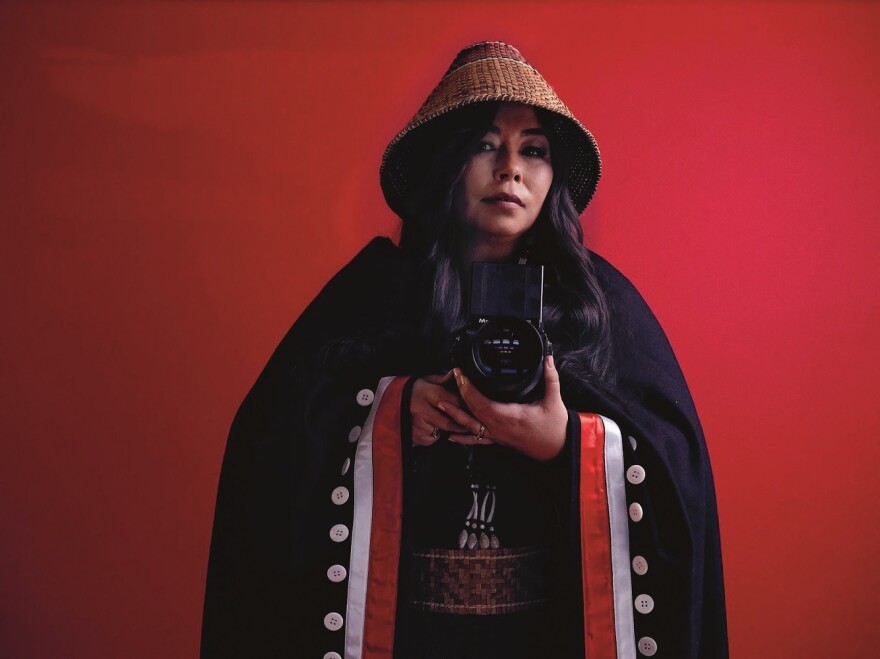Photographer Matika Wilbur was tired of seeing one-dimensional, insipid, degrading depictions of Native Americans in mainstream media and popular culture. So in 2012, Wilbur, who is of Swinomish and Tulalip descent, decided to create her own catalog of images.
She sold everything in her Seattle apartment and, with Kickstarter backing, headed out on the road, cameras in hand. Her goal: To illustrate Native Americans' diversity and complexity by photographing members of all of the then-562 federally-recognized U.S. tribes.


Ten years, 600,000 miles, and several vehicles later, Wilbur has published her work – portraits and interviews – in a stunning new book: Project 562: Changing the Way We See Native America. Over hundreds of pages, we meet Native elders, rappers, professors, artists, activists, linguists, dancers, ranchers, comedians, and more.
"In a lot of ways, this work is narrative correction work," Wilbur said. "When I was talking to folks, I was aiming to understand, 'What are some of the true stories about your people that you want people to know?'"

![The sketch comedy troupe The 1491s "use slapstick and satire in performances that unpack stereotypes, debunk racism, raid contemporary culture," Wilbur writes. Pictured left to right: Bobby Wilson (Sisseton-Wahpeton Dakota), Ryan RedCorn (Wazhazhe), Sterlin Harjo (Seminole, Muscogee [Creek] Nation), and Migizi Pensoneau (Ponca, Ojibwe.) Not pictured: Dallas Goldtooth (Mdewakanton Dakota, Diné)](https://npr.brightspotcdn.com/dims4/default/77406ef/2147483647/strip/true/crop/968x651+0+0/resize/880x592!/quality/90/?url=https%3A%2F%2Fmedia.npr.org%2Fassets%2Fimg%2F2023%2F04%2F26%2Fthe-1491s-p42_custom-0693b54e94077ebafffcc0f91f8fc5acf7d121c4.jpg)

In her interviews with the people she photographed, they shared stories about the lasting effects of colonization and relocation; about environmental destruction done to Native lands; and about the traumatic experience of those who had been taken from their homes as children and sent to Indian boarding schools to be "assimilated," forced to give up their language and Native identity.
But along with those painful conversations, Wilbur said, she also heard "the best parts: how we've healed from that, and what our people are doing to move forward, and to develop healthy and strong and thriving Indigenous nations."

Wilbur dedicates Project 562 to her daughter Alma Bee, now three years old, with these words:
May your children
hear and breathe
the words of
our Indigenous ancestors.
May we all be so lucky to
know an Indigenous future.
Photos reprinted with permission from Project 562: Changing The Way We See Native America by Matika Wilbur © 2023. Photographs by Matika Wilbur © 2023. Published by Ten Speed Press, an imprint of Penguin Random House.
The interview with Matika Wilbur was produced by Michael Levitt and edited by Justine Kenin. contributed to this story
Copyright 2023 NPR. To see more, visit https://www.npr.org.




